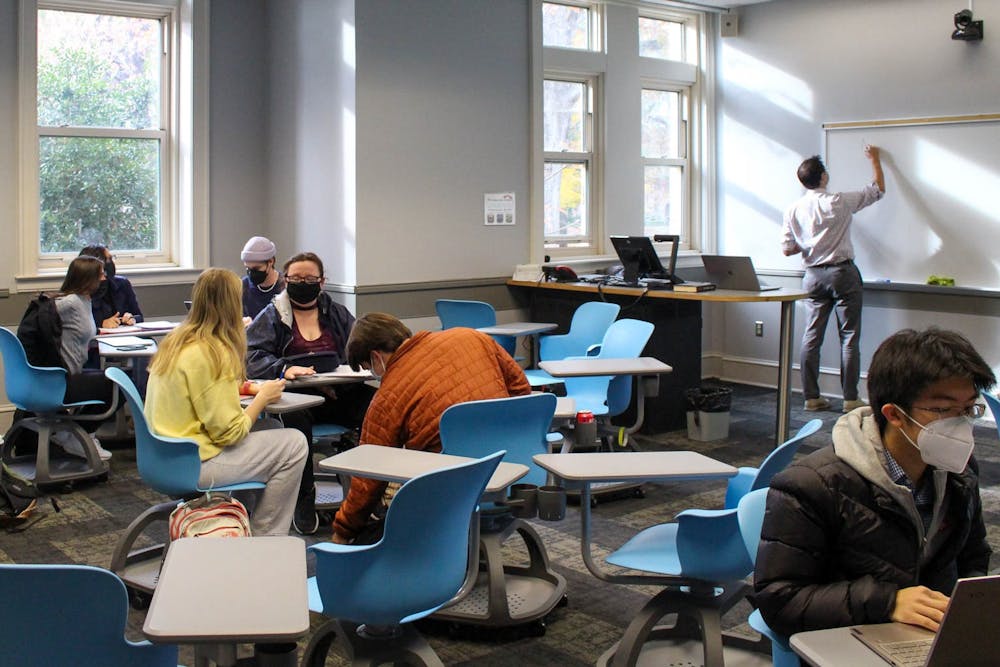This semester, students and faculty returned to complete their first full in-person semester in almost two years.
Fall 2019 was the last time UNC had a fully in-person semester. After over a year of operating remotely, students and faculty have had to adjust back to in-person learning, while balancing new teaching formats brought on by the virtual transition.
Diante Fields, a first-year majoring in biology, said it was difficult moving from online learning back to in-person classes.
“I would say coming back in person was a bit hard because this online education is very superficial and for us to come back in person full blast is like a whole different atmosphere,” Fields said.
Fields said he enjoyed online learning because of the flexibility it gave him in his daily schedule.
“We get tired as students, and we need that flexibility of like, ‘can I come to this class asynchronously?'" Fields said.
To help students adjust to the in-person return this semester, some professors have implemented remote options to give students a mix of both types of learning.
Victoria Song, a junior majoring in environmental studies and business administration, said these class options have been a good balance between the value of the in-person experience and the flexibility of remote learning.
“I think I realized that I really appreciate that some classes were in-person but could sometimes operate on a hybrid basis," Song said. "Like if you were sick or something, you could Zoom in and the professor could incorporate you into the class."




